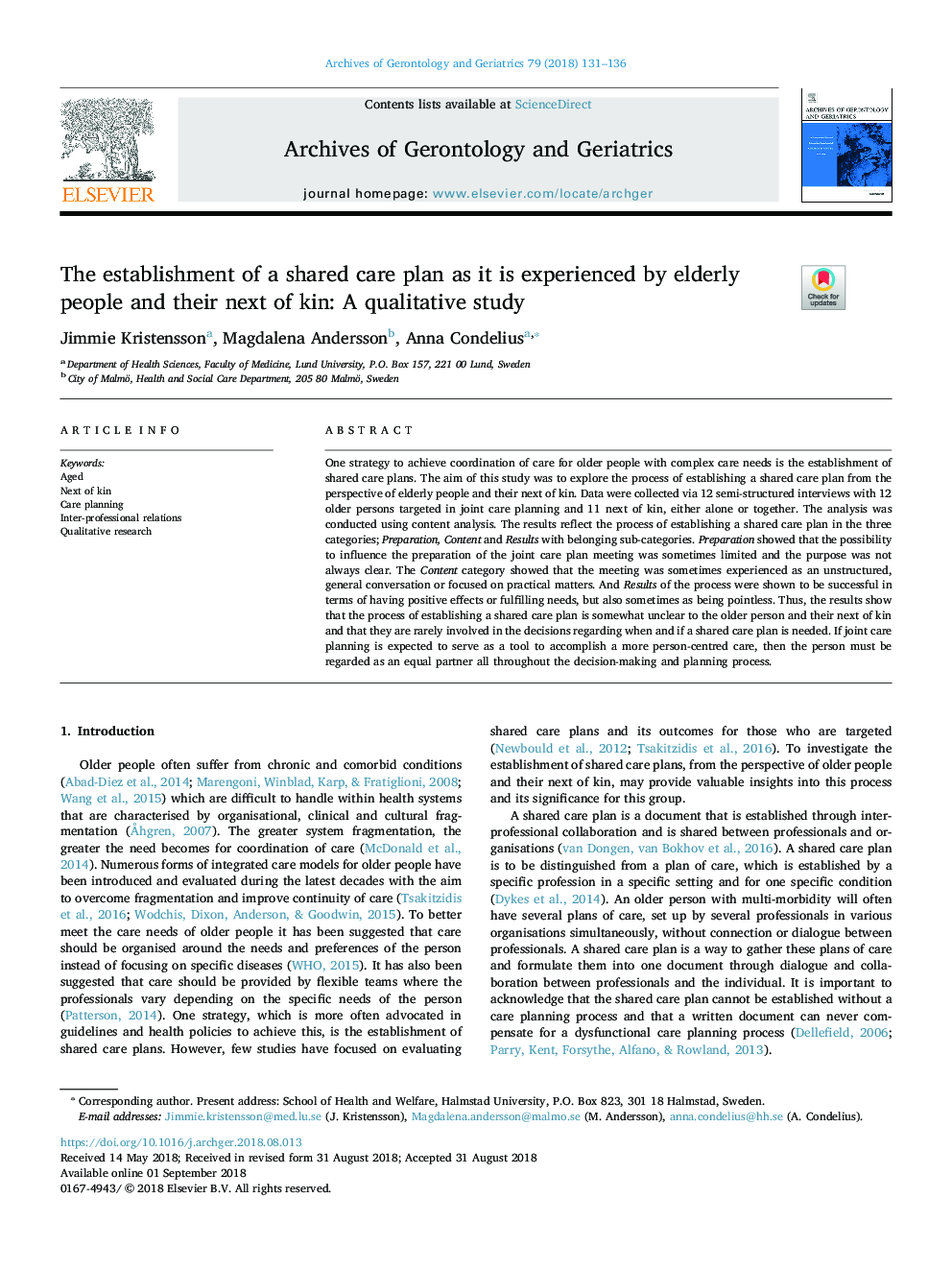| Article ID | Journal | Published Year | Pages | File Type |
|---|---|---|---|---|
| 9954002 | Archives of Gerontology and Geriatrics | 2018 | 6 Pages |
Abstract
One strategy to achieve coordination of care for older people with complex care needs is the establishment of shared care plans. The aim of this study was to explore the process of establishing a shared care plan from the perspective of elderly people and their next of kin. Data were collected via 12 semi-structured interviews with 12 older persons targeted in joint care planning and 11 next of kin, either alone or together. The analysis was conducted using content analysis. The results reflect the process of establishing a shared care plan in the three categories; Preparation, Content and Results with belonging sub-categories. Preparation showed that the possibility to influence the preparation of the joint care plan meeting was sometimes limited and the purpose was not always clear. The Content category showed that the meeting was sometimes experienced as an unstructured, general conversation or focused on practical matters. And Results of the process were shown to be successful in terms of having positive effects or fulfilling needs, but also sometimes as being pointless. Thus, the results show that the process of establishing a shared care plan is somewhat unclear to the older person and their next of kin and that they are rarely involved in the decisions regarding when and if a shared care plan is needed. If joint care planning is expected to serve as a tool to accomplish a more person-centred care, then the person must be regarded as an equal partner all throughout the decision-making and planning process.
Related Topics
Life Sciences
Biochemistry, Genetics and Molecular Biology
Ageing
Authors
Jimmie Kristensson, Magdalena Andersson, Anna Condelius,
